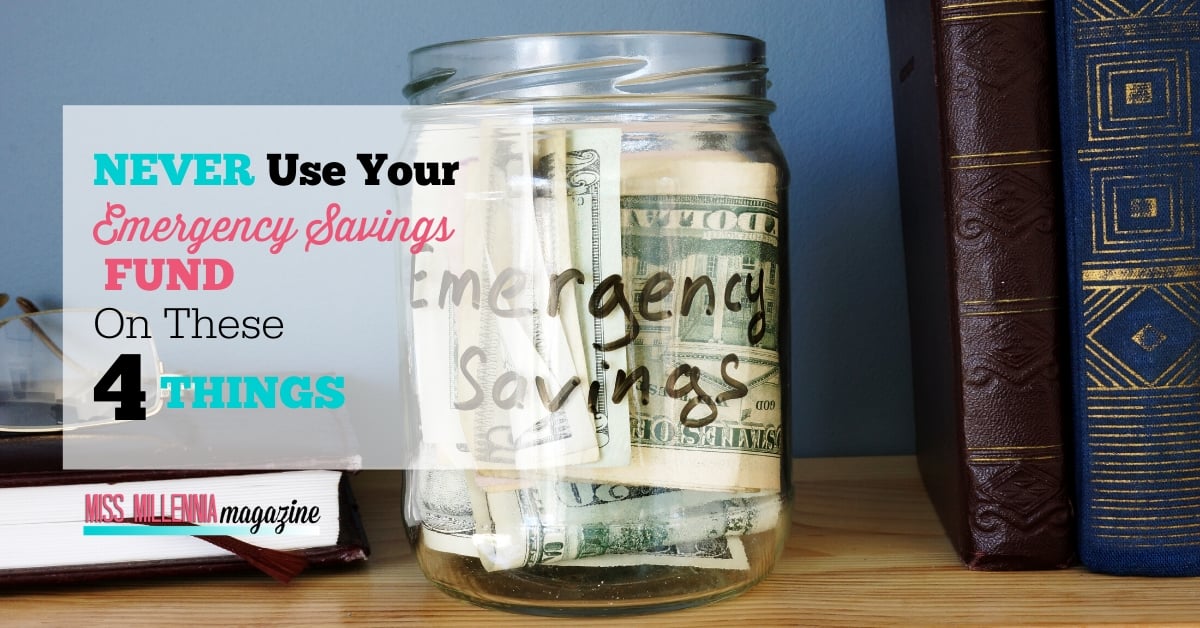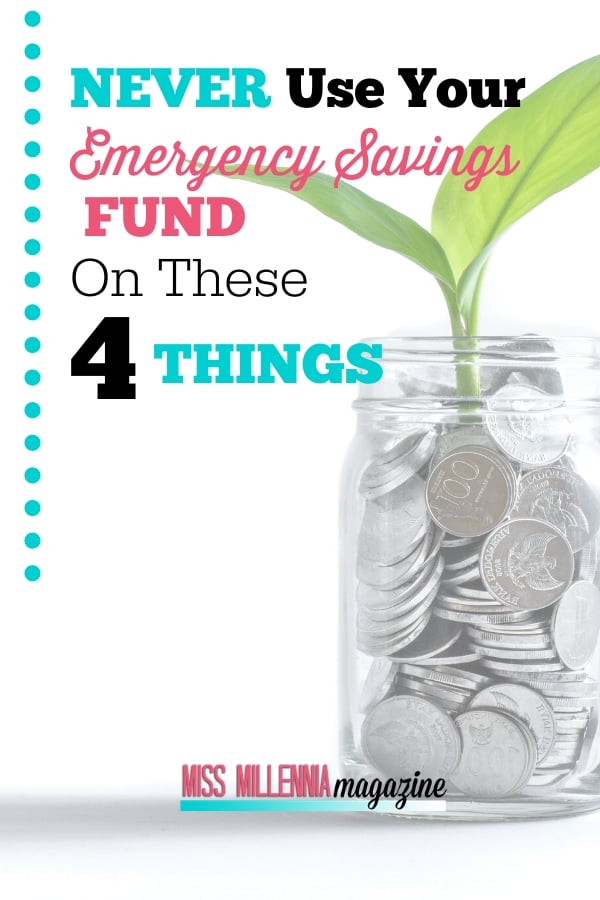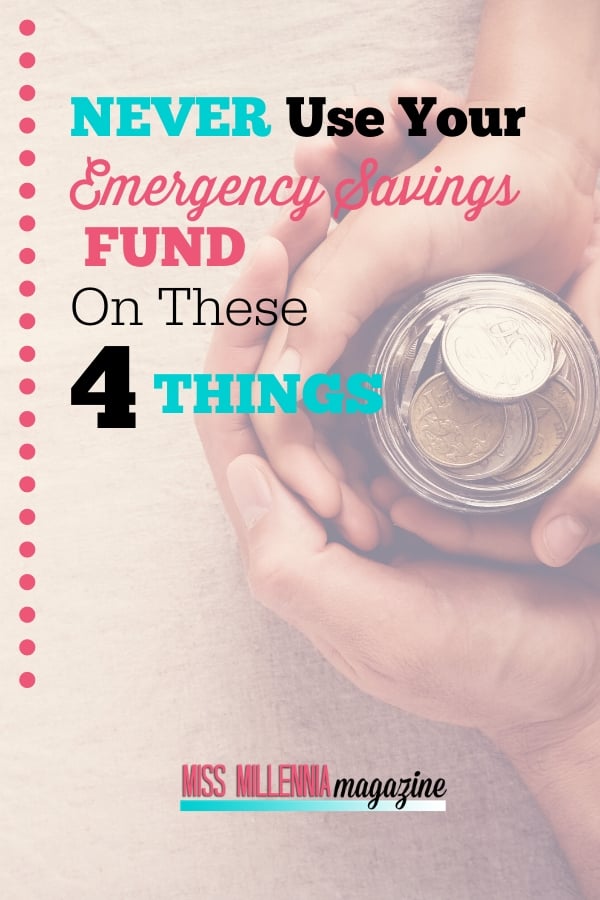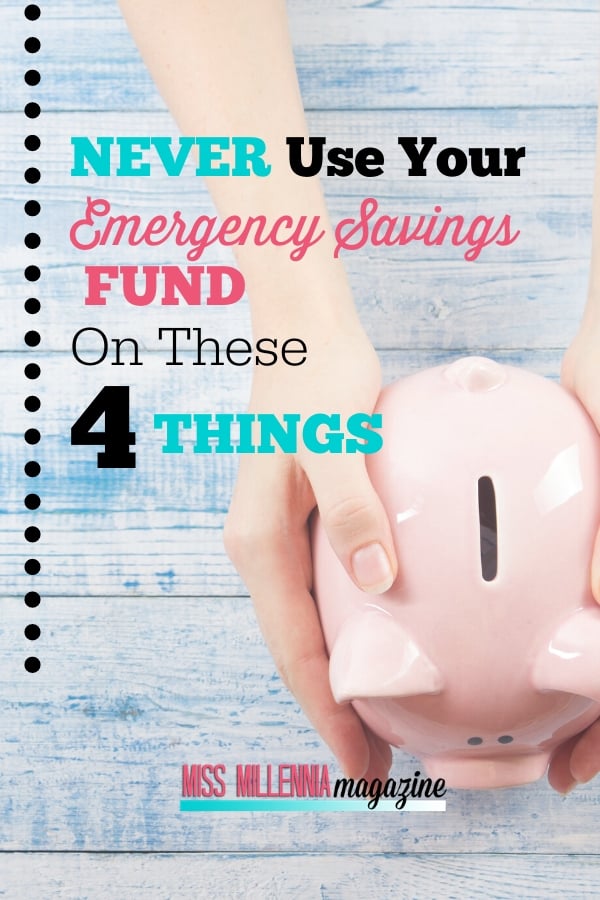Never Use Your Emergency Savings Fund on These 4 Things

As part of your budget and being financially smart, you decided to take the extra money you earned and stick it in savings. You probably feel much better knowing you have that money to use just in case you need it. Experts in finance recommend having at least $5,000 to $10,000 set aside in case you needed an emergency savings fund to cover essentials for a few months.
But the problem sometimes can be knowing whether or not you should use that money. There are some situations where it might not be the smartest thing to do.
1. Holiday Expenses
It is understandable that certain holidays like Thanksgiving and Christmas can be quite costly, and even more so if you’re going to be hosting guests at your place. But holidays are not emergencies even if items like Thanksgiving turkeys and Christmas presents start eating into your finances. Holidays and birthdays are events that you should have separate savings planned out for covering instead of dipping into your emergency savings account.
2. Unnecessary Home or Car Upgrades
This is where it can get a little tricky to decide whether or not to use money from an emergency fund. Of course, if your car suddenly breaks down or you get in an accident, you might not have any other option than tapping into your emergency savings. The same can be said if a natural disaster or unexpected pipe burst were to damage your home. But for non-essential expenses or routine maintenance on vehicles like oil changes, brake pad replacement, or even getting a new car itself, you should not use your emergency savings fund.
3. Non-essential Bills
You should never be dipping into your emergency fund to pay non-essential bills, such as your streaming service, TV package, or a subscription box.
In times of genuine emergency, you may need to use some money to keep your internet or cell phone turned on, and that’s ok. One alternative is to buy an emergency phone that has limited minutes but is very cheap to turn on and use when you need it. However, cable TVand media streaming services are luxuries.
Before it gets to that point, you should sign up for a free account with Trim to analyze your monthly bills and see where you can be saving money automatically. Learn more here!
4. Vacation and School
You would probably think the most apparent expenses not to use your emergency fund on are vacations and school supplies or tuition. But there are times when it can be tempting to use it on those.
For example, maybe you’ve had such a great year in terms of work and income, and perhaps you’ve met some financial goals that have given you a great sense of financial security. It’s easy to forget about how sudden some emergencies can be, and a lot of money in your emergency fund can be tempting to use.
You should never spend any money set aside for emergencies on vacations or school. Instead, try setting up a separate account for those things and pay into them as needed. This might mean you can’t afford a significant luxury cruise or trips to Disney World.
Luckily, there are sites like Momondo that make it easy to travel on the cheap. They will tell you the best times to fly to your destination, compare prices, and bundle your plane ticket with other services like the hotel and rental car. Check out Momondo here!
In conclusion, you should only use emergency savings on things like an emergency room visit, death in the family, car accident, or other emergency costs that you truly could not prepare for. If you are working on building your emergency savings but don’t have enough saved up to fully cover an unexpected expense, know that you have options. You might be able to use a credit card or apply for a line of credit to get you through the short-term financial strain. At the end of the day, it’s all about knowing your options and practicing responsible financing.










